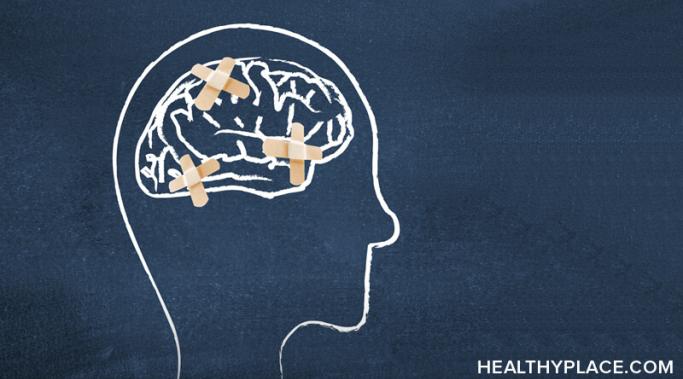To stay present in the here and now is one of the great challenges of posttraumatic stress disorder (PTSD). Flashbacks and triggers can pull you back to the past and a world that is no longer reality. With practice, however, you can train your brain to stay present instead of tormenting you with the past.
PTSD Recovery Tips
Tonight I was reminded that the emotional flashbacks of complex posttraumatic stress disorder (C-PTSD) are ever present in my life. I was sitting in bed snuggled up next to my golden retriever, Miles. I could hear my daughter in the living room singing to the songs playing through her earbuds. The louder she sang, the more I felt like I was about to come out of my skin. I just wanted to scream "Shut up." The thing is though, when I stopped to think about why her singing was flipping me out, I realized it wasn't about her singing at all. I was actually dealing with one the hallmarks of C-PTSD -- an emotional flashback.
For those of us living with posttraumatic stress disorder (PTSD), setting boundaries is crucial. Crucial, but also difficult. Trauma survivors with PTSD are commonly plagued by feelings of guilt, shame, or worthlessness, which can make the idea of standing up and setting boundaries feel futile or terrifying. It gets especially difficult when people don't respect those PTSD-related boundaries, which is a pretty common experience. Boundaries are broken, forgotten, or ignored all the time. Having to set--and then later repeat--your personal boundaries is exhausting. Living with PTSD makes setting boundaries imperative.
Do you know how to explain posttraumatic stress disorder (PTSD) experiences to your doctor? If you have difficulty speaking with your primary care provider about your PTSD, here are some ideas to help you explain how PTSD impacts you. Many people assume that primary care providers have experience working with individuals with PTSD, but often, primary care providers have a general knowledge of PTSD without any concrete understanding of how it impacts the daily life and health of their patients. This lack of knowledge is especially problematic when someone with PTSD avoids discussing his or her mental health with his or her medical provider. It is important to learn how to explain PTSD and its impact on your life to your doctor.
As an individual with complex posttraumatic stress disorder (PTSD) and resulting low self-esteem, I can spend an exhaustive amount of time worrying about how others perceive me. Even though these worries are not the most rational when held up for inspection, they are so automatic that sometimes they slip right out before I have time to think about them. Here are some examples of how my low-self esteem manifests itself and what helps me fight the negativity, warped self-confidence and low self-esteem caused by my PTSD.
Many abuse survivors grapple with feelings of shame after abuse. When someone develops posttraumatic stress disorder (PTSD) as a result of her abuse, that shame can become a long-term problem. Shame after abuse doesn't have a rational basis, but even people who know it's irrational to feel shame over being abused can still experience it. Unfortunately, emotions don't always follow logic.
One of the things I find most frustrating about living with posttraumatic stress disorder (PTSD) is the impact PTSD has on my sex drive. I am a private person, and sex is a decidedly personal issue for many people, so I've put this topic off many times. However, the problems that PTSD can bring to partners don't go away on their own, so let's explore the potential difficulties that PTSD symptoms can bring to a sexual relationship.
Complex posttraumatic stress disorder (C-PTSD) and perfectionism often occur together. What drives someone with C-PTSD towards clinically significant perfectionism? Generally speaking, perfectionism becomes clinically significant when it results in an excessive or unrealistic need to perform to exceedingly high, self-imposed standards. The drive for perfection is so strong that it can interfere with work, education or relationships. For individuals with C-PTSD, the need for absolute excellence can become a means of dealing with fear and anxiety created by ongoing trauma. Let's examine how trauma drives these unrealistic expectations, and how to set more realistic goals.
Feeling helpless helps my trauma recovery? Yes--you read the title correctly. The subject of this article is helplessness as a form of healing. If that sounds completely counterintuitive to you, you're not alone. I'm sure that if I had come across an article making this same claim in the past, I would have labeled it as completely ludicrous. But hear me out. If you totally disagree, you can write out your counter-argument in the comments.
A good posttraumatic stress disorder (PTSD) trauma therapist can make all the difference when it comes to PTSD treatment, but not all therapists are created equal. Finding a competent trauma therapist for your PTSD recovery can be difficult without an understanding of the technical and interpersonal skills a PTSD trauma therapist should possess, and what approaches you find comfortable.









